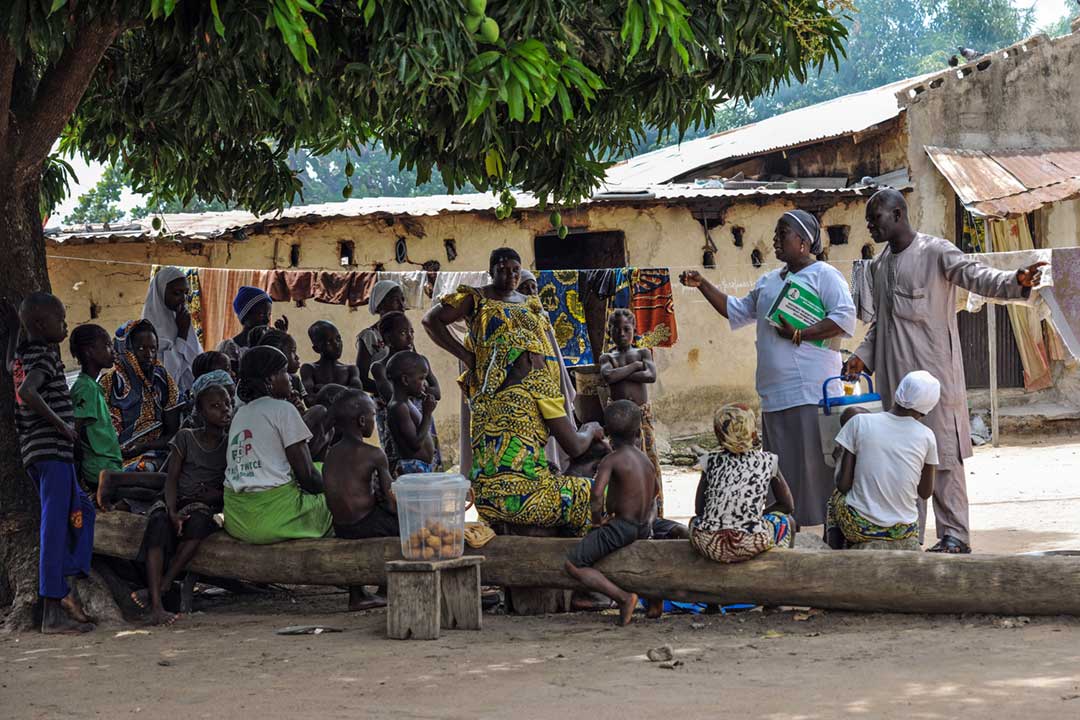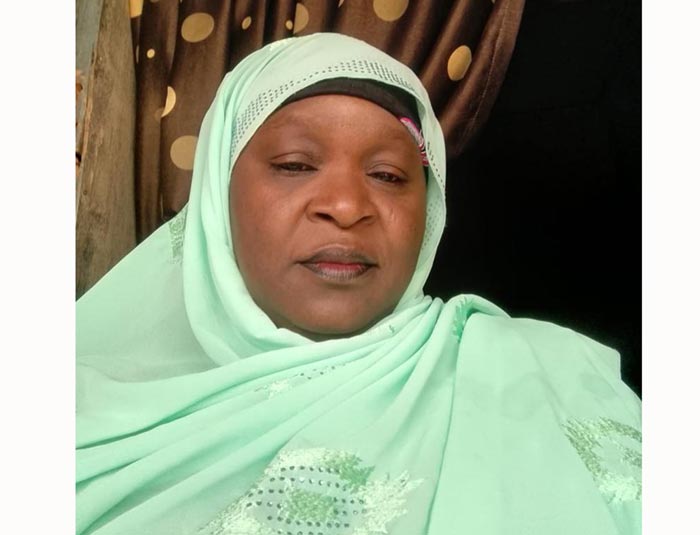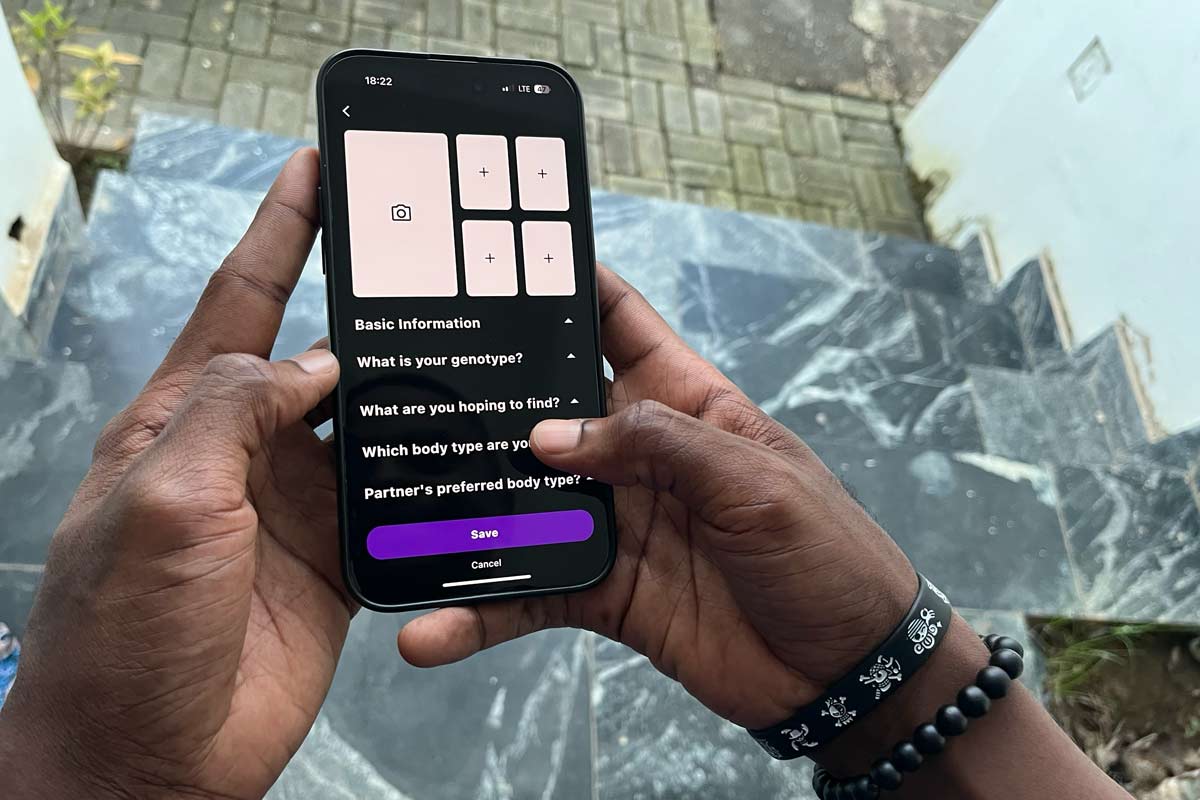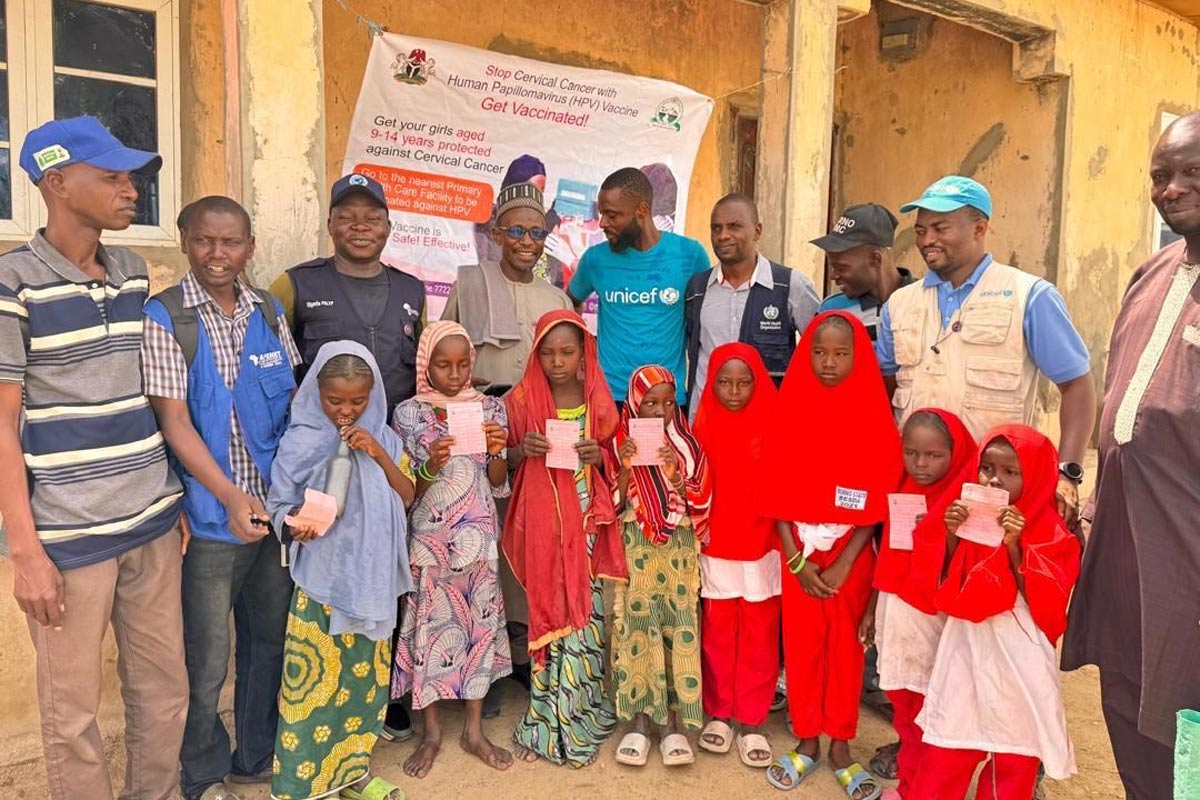“It is my calling” – in rural Nigeria, a community health worker is a medic, teacher, carer, mobiliser and more
Amid scarce resources and a short-staffed health sector, rural community health workers carry more than their share.
- 8 March 2024
- 10 min read
- by Zubaida Baba Ibrahim

Asma'u Shehu, aged 40, had planned to become a primary school teacher, but her mother suggested she pursue a career in health care, because female health providers were few in their north-west Nigerian community.
She took her mother's advice, and found that education and health care had more in common than she had imagined.
For about a decade now, Asma'u has been a community health worker in Wammako Local Government Area, Sokoto state – and in that time, she has transformed the way women in her community view health care.
"Through regular health talks and education, I have been able to help change these attitudes and increase the number of vaccinated children in the community. The difference is remarkable, and it is something I am very proud of."
– Asma’u Shehu
Forging a personal connection with community members, Asma'u has helped improve her community's health, but also empowered women to take control of their own physical and reproductive health, debunking common myths and misconceptions about family planning. She has shown that health care is not something to be feared, but rather, something that can improve the quality of life for everyone.
Nigeria's health care system is severely understaffed, with just one doctor for every 9,000 patients, falling way short of the World Health Organization's recommended ratio of one doctor per 600 patients. This health care shortfall is more pronounced in remote communities, where health workers like Asma'u are expected to step up and bridge the gap.

Credit: Asma'u Shehu
Today, Asma'u helps supervise a primary health centre in Wammako, working closely with other CHWs, and ensuring patients in the community have access to the care they need.
Recently, she spoke to VaccinesWork about her life and work.
VW: Do you think your passion for teaching has fed into how you fulfil your role as a CHW?
AS: It has played a role in many aspects of my current work, but especially in boosting immunisation. I have seen a significant change in the way people view immunisation. Before, when women would give birth, they would often be hesitant to get their children vaccinated, citing fears like their children may die and other usual misconceptions about vaccines. However, through regular health talks and education, I have been able to help change these attitudes and increase the number of vaccinated children in the community. The difference is remarkable, and it is something I am very proud of.
I have the contact details of almost everyone and I regularly follow up with them, and I understand that sometimes people have other things on their schedule, like chores, that prevent them from bringing their children for vaccinations. In these cases, I advise them to plan ahead and clear their schedule for the following day, so that they can bring their child to the hospital to be vaccinated.
"I have developed close relationships with the women in the community, and they trust me to give them honest and accurate information."
– Asma’u Shehu
Even if I am not working at the hospital that day, I will go and wait for them to make sure that the child gets vaccinated.
It also comes into play regarding family planning. Some people have misconceptions about the side effects, such as bleeding. I take the time to educate them and explain that everyone's body is different and that we can make adjustments if there are any side effects. I have developed close relationships with the women in the community, and they trust me to give them honest and accurate information. My mother encouraged me to work in health care because she believed that women would respond well to my warmth and empathy. I am happy to be fulfilling her vision by providing reliable information and support to the women in my community.
During the rainy season, gutters become clogged with stagnant water, which attracts mosquitoes and can lead to the spread of disease. I use my knowledge and diplomacy to educate people about the importance of keeping their gutters clear and free of standing water. I have seen other health workers try to take a more authoritative approach, but I have found that by being respectful and helpful, I am able to make a greater impact. It is my calling to combine my previous passion and current knowledge to help people live healthier lives.
VW: What preoccupies or hinders you in your work?
AS: In my nine years of work and with all the experience I have already told you about, my salary has remained 17,000 nairas (about US$ 11). Many of us are severely underpaid for the work that we do, maybe because we are also mostly women. My monthly salary is barely enough to cover my transportation costs, let alone my other basic needs. Even though I'm only required to work at the centre from Monday to Thursday, I often spend Friday through Sunday providing care in the community.
But I remain committed to my role. My passion for improving the health of my community is my priority.
I'm grateful for the support we receive from organisations and partners, who help us stock up on medication and medical supplies, provide free birth control and contraceptives, and provide mosquito nets for the primary health centre and the community. This support has a significant impact on our ability to provide care.
While the government does provide important things too like polio vaccines, the infrastructure of the primary health centre remains a significant challenge. Running water is not available, so we have to purchase or fetch water to clean the hospital. This lack of running water can be frustrating and makes work difficult for us, and our patients, who are also mostly women and children. Sometimes women who go through days of labour and have to go through it without having a proper bath until they bring their own water.
We have repeatedly raised the issue of poor infrastructure at our primary health centre with the community leaders, in the hopes that they would advocate for improvements to the government, but we have not seen any changes or improvements.
"I have seen other health workers try to take a more authoritative approach, but I have found that by being respectful and helpful, I am able to make a greater impact."
– Asma’u Shehu
Currently, we have decided to take matters into our own hands and raise funds to buy the pipes needed to improve the water infrastructure at our health centre. Without clean water, we cannot properly care for our patients and they won't be comfortable. These issues have become so critical that we are having to buy water even when our patients want to swallow their medication.
The health care centre where I work was built in the 1970s. It is older than I am, and has not been adequately maintained since then. Over the years, we have had to take on the responsibility of renovating and improving the facility ourselves, like buying curtains to ensure the privacy of our patients. It is unfair that we have had to make these improvements with our own resources, rather than receiving adequate funding and support from the government.
Have you read?
We have also had to replace the broken windows and purchase benches and mats to provide patients with a comfortable place to wait. Even these basic amenities have had to be funded through our own contributions and donations from local non-governmental organisations.
It is saddening that these essential items are not provided by the government, and it is clear that the health centre is not a priority for them. Our remote village is largely ignored by the government: we submit reports monthly, but nothing changes. We only see them when it is time for elections, when they make unfulfilled promises in an attempt to secure votes.
VW: What are the challenges you face with the community members you serve?
AS: In rural areas like Wammako, there is a severe shortage of female doctors, and this often prevents women from accessing the health care they need. Many men refuse to allow their wives to be treated by male doctors, creating a significant barrier to care. So CHWs like myself often have to fill this gap. Also, sometimes patients are reluctant to follow up on treatment, even when they're aware of the importance of doing so, and that is one challenge I often face and an aspect I detest.
"In my nine years of work and with all the experience I have already told you about, my salary has remained 17,000 nairas (about US$ 11). Many of us are severely underpaid for the work that we do, maybe because we are also mostly women."
– Asma’u Shehu
A story that really saddens me was of a woman who came to the primary health centre while in labour. We successfully delivered the baby and the placenta, and discharged the woman after providing treatment and education about the postpartum stage. However, she started having abdominal pain, and instead of returning to the centre, she went to a local drugstore owner who injected her incorrectly, causing the area to swell. The situation had become quite serious by the time she called me for help. When I learned that the patient had been injected by someone else, I was shocked and saddened. The injection eventually caused a serious infection, and we had to spend over 51 days treating and dressing the wound. I am relieved now that the wound has healed, but she is still limping. It's unfortunate that this preventable incident is having such a lasting impact on her health.
It's frustrating when patients do not follow our medical advice and instead pursue less effective or potentially harmful treatment options. I understand that this is usually because of, maybe, the financial resources available to them are not much – but this can have serious consequences.
"We have decided to take matters into our own hands and raise funds to buy the pipes needed to improve the water infrastructure at our health centre."
– Asma’u Shehu
Not only do these situations have a lasting impact on the patient's health, but they can also put a strain on my resources and ability to provide quality care to others.
Cultural beliefs and practices around labour and delivery can create barriers to accessing appropriate medical care. Instead of going to the hospital as we always advise, some will claim that the women in their lineage don't deliver in a hospital, or they only deliver through traditional birth attendants. These are some of the obstacles and can often cause me frustration.
But to address this issue, I've been working with local drugstore owners to educate them about the importance of referring patients to qualified medical providers. It's not fair to give someone medication without properly assessing and diagnosing them. I've also engaged with religious and traditional leaders to raise awareness about the importance of seeking appropriate medical care. By working with these key stakeholders, I am creating a supportive environment for patients, especially women, to make healthy choices about their bodies.
VW: What aspect of your job brings you the most fulfilment?
AS: While there are various things I have achieved in my community that are rewarding, what I find most fulfilling is teaching other CHWs what I have learned, and mentoring them until they are able to carry out health work in the community independently. I have mentored over 20 CHWs, some of whom have gone on to work in primary health care facilities or in other communities across Sokoto, while others have moved on to other places.
"In rural areas like Wammako, there is a severe shortage of female doctors, and this often prevents women from accessing the health care they need. Many men refuse to allow their wives to be treated by male doctors, creating a significant barrier to care. So CHWs like myself often have to fill this gap."
– Asma’u Shehu
Despite the distance, we remain in touch and they continue to do well in their respective paths. I am proud to have played a role in their development and to see them thriving in their work. It is important to me that everyone is involved and feels a sense of ownership in their process. This ensures that the work is sustainable and that everyone benefits from it.








